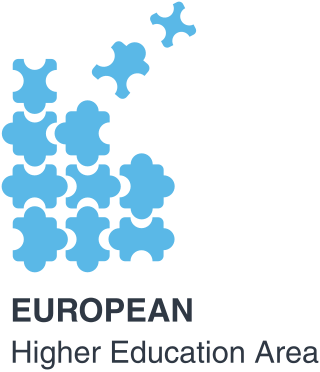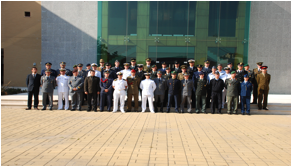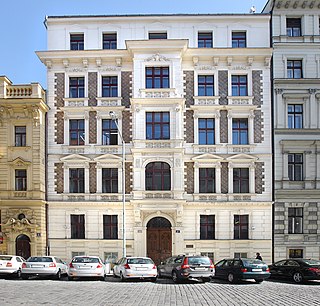Related Research Articles

The Colombo Plan is a regional intergovernmental organization that began operations on 1 July 1951. The organization was conceived at an international conference, The Commonwealth Conference on Foreign Affairs held in Colombo, Ceylon in January 1950, and was attended by the finance ministers of Australia, the United Kingdom, Canada, Ceylon, Pakistan and New Zealand, and the prime ministers of Ceylon and India. Membership has expanded significantly over the years to the current 28 governments.

The Pacific Community (PC), formerly the South Pacific Commission (SPC), is an international development organisation governed by 27 members, including 22 Pacific island countries and territories around the Pacific Ocean. The organisation's headquarters are in Nouméa, New Caledonia, and it has regional offices in Suva, Pohnpei, and Port Vila, as well as field staff in other locations in the Pacific. Its working languages are English and French. It primarily provides technical and scientific advice, and acts as a conduit for funding of development projects from donor nations. Unlike the slightly smaller Pacific Islands Forum, PaciCom is not a trade bloc, and does not deal with military or security issues.

The Erasmus Programme is a European Union (EU) student exchange programme established in 1987. Erasmus+, or Erasmus Plus, is the new programme combining all the EU's current schemes for education, training, youth and sport, the most recent programme covering the years 2021–27.

The Lifelong Learning Programme 2007–2013 was the European Union programme for education and training.

The European Higher Education Area (EHEA) was launched in March 2010, during the Budapest-Vienna Ministerial Conference, on the occasion of the 10th anniversary of the Bologna Process.

Academic mobility refers to students and teachers in higher education moving to another institution inside or outside of their own country to study or teach for a limited time.

The TEMPUS is a program that encouraged higher education institutions in the EU Member States and partner countries to engage in structured cooperation through the establishment of "consortia". The "consortia" implemented Joint European Projects (JEPs) with a clear set of objectives to promote exchanges and mobility of teaching staff and trainers. Such projects could receive financial aid for two or three years. Tempus also provided Individual Mobility Grants (IMGs) to individuals working in the higher education sector to help them work on certain specified activities in other countries.
In the European Union education is at the responsibility of its Member States and their Ministries of education that they have; in such, the European Union institutions play only a supporting and overseeing role. According to Art. 165 of the Treaty on the Functioning of the European Union, the Community
shall contribute to the development of quality education by encouraging cooperation between Member States, through actions such as promoting the mobility of citizens, designing joint study programmes, establishing networks, exchanging information or teaching languages of the European Union. The Treaty also contains a commitment to promote life-long learning for all citizens of the Union.

The Erasmus Student Network (ESN) is a Europe-wide student organisation.
The University of the Peloponnese [Greek: Πανεπιστήμιο Πελοποννήσου(ΠΑ.ΠΕΛ.)] is a Greek tertiary educational institution, composed of campuses in Tripoli, Corinth, Kalamata, Nafplio, Sparta, and Patras.The University of Peloponnese offers 22 undergraduate study programs that grant corresponding titles and 36 postgraduate study programs.
College transfer is the anticipated movement students consider between education providers and the related institutional processes supporting those secondary and post-secondary learners who actually do move with completed coursework or training that may be applicable to a degree pathway and published requirements.
The European Union's Erasmus Mundus programme aims to enhance quality in higher education through scholarships and academic co-operation between the EU and the rest of the world. The three main objectives of the programme are linked to the internationalisation of students, staff, curricula and research; ensure an influence on the development of practice in Special Education Needs and inclusive education; and to develop international collaborative networks, projects and research.
The Commonwealth Youth Programme, also known as CYP, is an international development agency working with young people between the ages of 15 and 29. Part of the Commonwealth Secretariat, CYP is active in the Commonwealth's 54 member countries. CYP has a head office in London with four centers in Africa, Asia, the Caribbean, and the Pacific. Currently, there are four regional directors and 16 program officers, plus support staff, working there.
The Higher Education European Masters is an Erasmus Mundus program which focuses on the functions, policies, and operations of higher education. Professor Peter Maassen, a professor at the University of Oslo and also a research professor at NIFU-STEP, was instrumental in the conceptualisation of the programme. The program was among the first to acquire an Erasmus Mundus European Masters label of the European Union in 2004.

The Academic Cooperation Association (ACA) is an international think tank in the area of international cooperation in higher education. Since 1993, ACA has worked to promote innovation and internationalisation of European higher education in collaboration with its pan-European network of member organisations, each responsible in their respective countries for supporting internationalisation in education and training. ACA also maintains a global perspective through its associate members in other parts of the world.

The Military Erasmus Programme, formally the European initiative for the exchange of young officers inspired by Erasmus, is an initiative undertaken by the European Union (EU) member states aimed at developing the exchanges between armed forces of future military officers as well as their teachers and instructors during their initial education and training. Because the initiative is implemented by the Member States on a purely voluntary basis, their autonomy with regard to military training is not compromised.

The Faculty of Social Sciences (FSS) is one of the newest faculties of Charles University. The Faculty was founded in 1990, shortly after the Velvet Revolution. It soon became a regional centre of teaching and research in area studies, economics, international relations, journalism, media studies, sociology and political science. The Faculty offers bachelor's, master's, and doctoral degree programs in social sciences. While the languages of instruction are Czech and English, students can choose from classes in a wide range of other languages, including French, German, Russian and Spanish.
The ch Foundation for Federal Cooperation is a Swiss inter-cantonal organization under private law. It is sponsored by all 26 cantons and has its head office in Solothurn. The Foundation's Board of Trustees is composed of 26 members of the individual cantonal governments. Founded in 1967, the Foundation is committed to promoting the principle of federalism. It supports cooperation between the cantons and with the Confederation. As part of its work, it runs the Haus der Kantone in Berne, manages the secretariat of the Conference of Cantonal Governments (CCG), and organizes training courses for members of the cantonal governments.
Erasmus+ is the European Commission's Programme for education, training, youth, and sport for the period 2021–2027, succeeding the previous programme (2014–2020). As an integrated programme, Erasmus+ offers more opportunities for the mobility of learners and staff and cooperation across the education, training, and youth sectors and is easier to access than its predecessors, with simplified funding rules and a structure that aims to streamline the administration of the programme. The new Erasmus+ Program, running from 2021–27, is more digital, inclusive and innovative, as well as greener.
EUF - Campus Europae is a European network which aims at the promotion of high quality student mobility and contributing to educating a generation of European graduates with an innate understanding of Europe’s unity in diversity. The project is under the patronage of the Government of the Grand Duchy of Luxembourg and its secretariat is in Oetrange.
References
- ↑ "UMAP Membership". 28 February 2020.
- 1 2 3 4 UMAP About.
- ↑ UMAP Governance.
- ↑ "The Education Network (EDNET)".
- ↑ "Participation in the 6th APEC Conference in Vladivostok, Russia". 6 September 2017.
- 1 2 3 UMAP Brief History.
- ↑ "List of Projects by Priority Area | 2004 APEC Education Ministerial Meeting".
- ↑ Yu Kameoka (June 1996). "Issues Surrounding Mobility with Particular Reference to Japan". European Journal of Education. 31 (2): 243–249. ISSN 0141-8211.
- ↑ UMAP 台灣國家秘書處 - 台灣在UMAP的參與
- ↑ UMAP Members.
- 1 2 Governance and Funding.
- 1 2 Universities Responsibilities.
- ↑ UMAP Exchange Funding.
- ↑ UMAP Exchange Funding in Australia.
- ↑ UMAP Credit Transfer Scheme.
- ↑ More about UCTS.
- ↑ UMAP Scholarships.
- 1 2 Erasmus Programme.